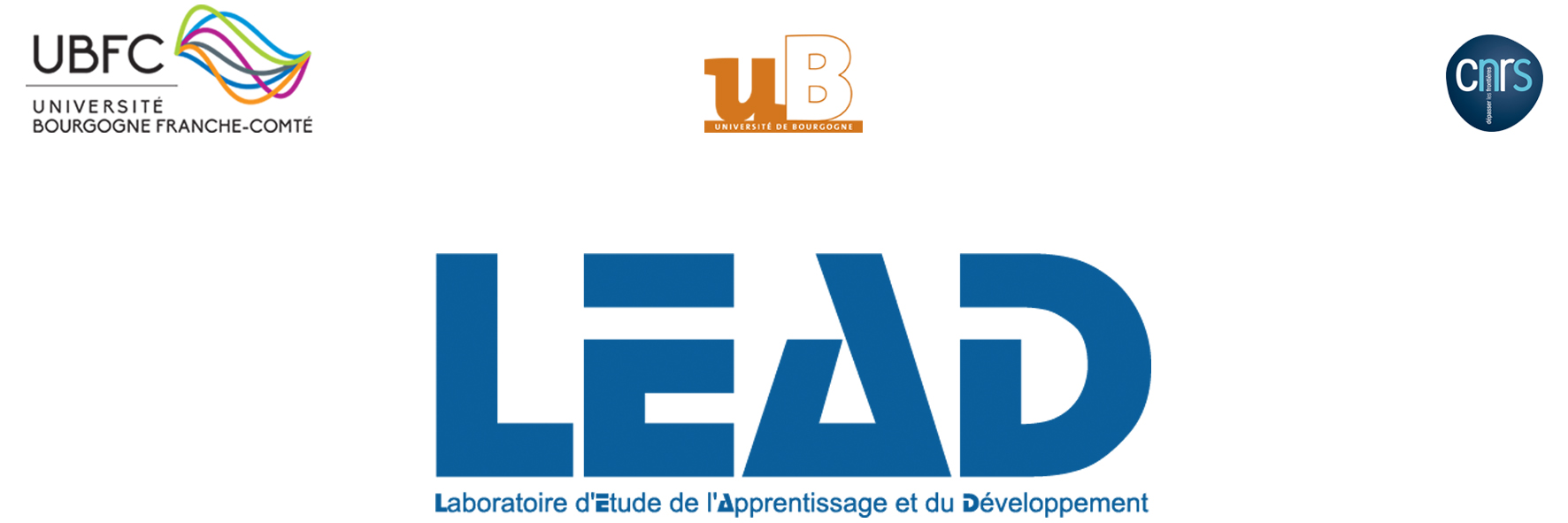Jeudi 11 juillet 2024 - Aphantasie : vivre et penser sans imagerie mentale
Publié : 29 mai, 14:53
Lien de la visio Programme Inscription (gratuite) avant le 9 juillet 2024 Aphantasie : Vivre et penser [...]

Laboratoire d'Etude de l'Apprentissage et du Développement
Le LEAD est un laboratoire de psychologie cognitive qui étudie les modifications des processus de traitement de l’information consécutives aux apprentissages (implicites, didactiques et professionnels), au développement de l'individu (enfant, personne âgée) et à ses perturbations, qu'elles proviennent d'handicaps (cécité, surdité) ou de troubles neuropsychiques.
L’originalité théorique de l’unité est de défendre une approche parcimonieuse de la cognition qui se démarque des modèles théoriques dominants. Les recherches fondamentales sont complétées par des recherches ayant des implications directes dans le domaine de la santé, de l’éducation et dans une moindre mesure, de l’entreprenariat. Une place croissante est donnée aux études interdisciplinaires.
Le LEAD est actuellement rattaché à l’Institut des sciences biologiques (INSB) du CNRS (Section 26: Cerveau, Cognition, Comportement).
Il comprend 14 enseignants-chercheurs (6 PU, 8 MCU), 2 chercheurs CNRS (2DR), 2 ITA et 2 BIATSS, et 14 doctorants, auxquels viennent d'ajouter des chercheurs invités, des ATER/Postdoctorants, des ingénieurs contractuels et des chercheurs associés.
La plateforme technologique MAREY est adossée au LEAD
